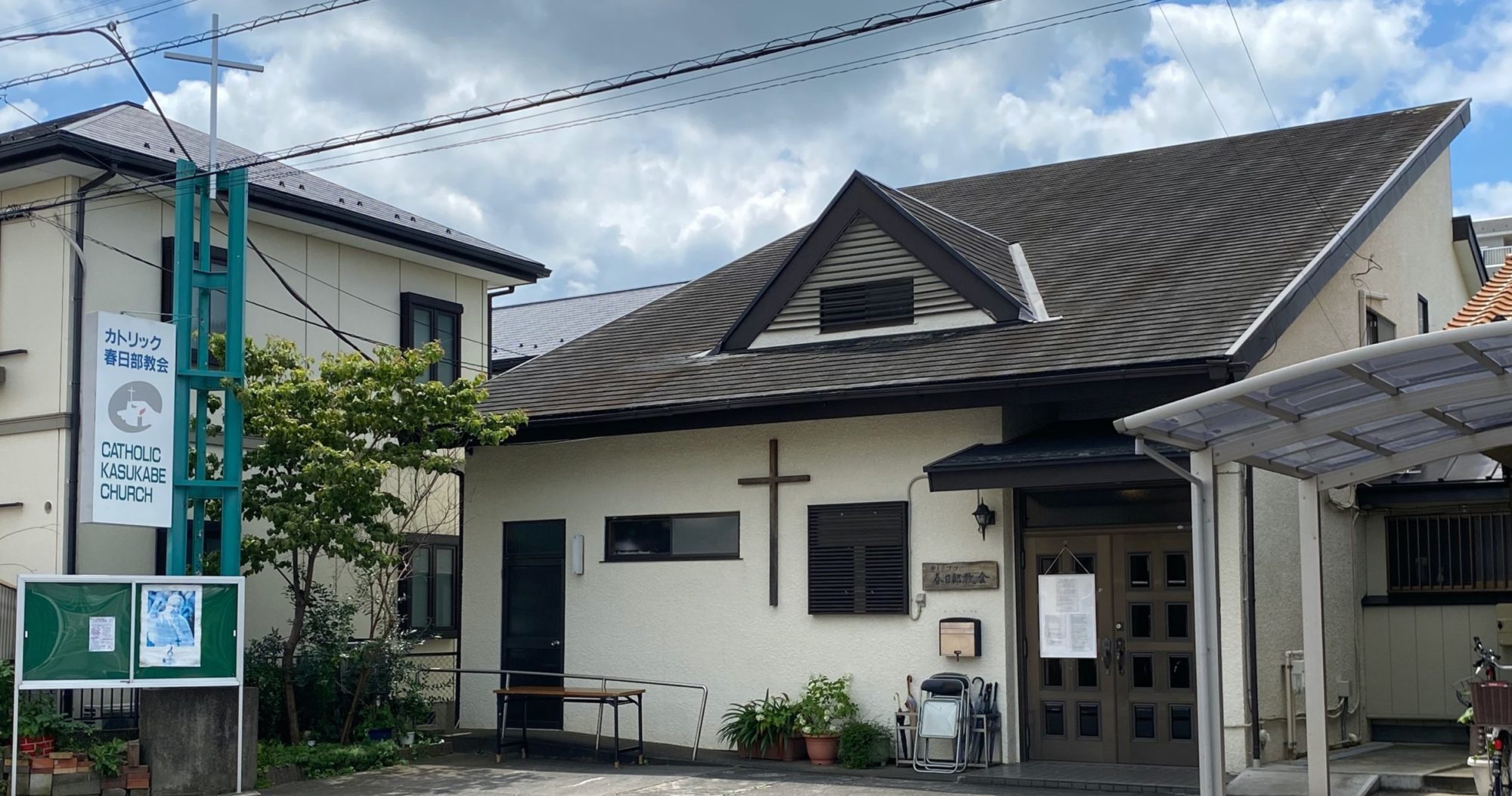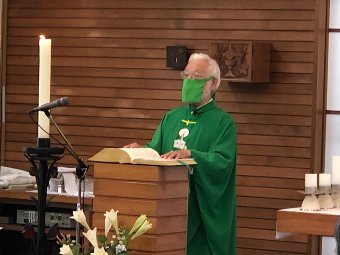※2020年8月16日 年間第20主日A年
(→English)
カナンの女と子犬
司祭 鈴木 三蛙
今日のみ言葉は、カナンの女のおはなしです。イエスがティルスとシドンの地方に行ったとき、女はイエスが来たと知ると、「ダビデの子よ、私を憐れんでください。娘が悪霊にひどく苦しめいられています。」と叫びます。でも、「イエスは何もお答えにならなかった」とあります。「何で?」と思いませんか? そして弟子たちはと言えば、うるさいからと追い払おうとするのです。これまた薄情だと思いますよね。さらに引っかかるのは「子供たちのパンをとって子犬にやってはいけない」ということば。犬呼ばわりですよ。これがイエス様の言葉・?と思ってしましませんか。
まず、カナンに来たいきさつから見てみましょう。今日の個所は21節からですが、15章の初めには、エルサレムから来たパリサイ人と律法学士たちが、イエスの弟子たちが先祖からの言い伝えを守らないことについて、論争を仕掛けています。その前の章ではパンの奇跡と、休むために対岸に行かせたが嵐にあったというお話でした。
イエスの弟子たちもイエスもかなり疲れていて、本当に休みが必要で、パリサイ人、律法学者たちの偽善に辟易して、足の塵を払うような形で、ユダヤから離れたところでした。
既成宗教に対して足の塵を払ったイエスは、私たちの教会に対しても、もし辟易したら、足の塵を払われるかもしれません。
ここで一つの言葉に注目したいと思います。「子犬」です。相手を犬呼ばわりするときには、そこに強い侮蔑の意味がこめられます。でも、この子犬という言葉には優しさと愛情が含まれているのです。
指小辞(ししょうじ)‥という言葉をご存知でしょうか。ある言葉につけて、小さい、かわいい、という意味をあらわす言葉です。今、セウイの台所のわきに野良猫が子猫を生んでいて、時々姿を見つけるそうです。かつて、やはり物置に野良猫が子供を産んだことがありますが、子猫はすばしっこく、決してつかまりませんでした。犬も野良犬は恐ろしいし、その子犬も歯をむき出して威嚇してくるでしょう。人間を犬と呼ぶのは致命的な侮辱でした。そのような犬呼ばわりは、犬はごみをあさる不潔な動物という印象でしたが、ここに出てくるのは、そのような犬ではないのです。ギリシャ語で犬はキュノスですが、ここではこの指小辞が使われていて、キュナリオンなっています。飼い主のところに愛情込めて飼われている子犬という感じです。イエス様は、いわば、愛情込めて「子犬ちゃん」と呼んでいるいうところでしょうか。
訪れた異邦人の地、あるいはそこに信仰を見出そうとしたのでしょうか。イエスはカナンの女の信仰を試します。イエスの厳しい言葉にも彼女は耐え、娘をいやすことのできる方はこの方を置いてはいない・・その確信をもって、「子犬も主人の食卓から落ちるパンくずはいただくのです」とこたえます。
カナンの女は、はじめイエスをダビデの子と呼んでいます。世俗的な呼びかけですが、あとからは信仰をもって「主よ」と呼び掛けています。
そしてイエスは彼女の信仰に応え、娘の病気をいやしたのです。
※2020.08.16 20th Sunday in Ordinary Time(A)
Canaan woman and puppy
by Rev. Fr. Suzuki, Michael Kunihiro
Today’s scripture is the story of a Canaan woman. When Jesus went to the provinces of Tyre and Sidon, the woman found that Jesus had come and shouted, “Children of David, have mercy on me. My daughter is terribly suffering from evil spirits.” But, “Jesus did not answer anything.” Don’t you think “Why?” The disciples even try to get rid of her because she asked much. Isn’t it merciless? There is another part that catch our attention. “Don’t take children’s bread and give it to a puppy.” A puppy? Is this the word of Jesus?
First, let us look at how He came to Canaan. Today’s story starts from chapter 15, verse 21, but at the beginning of chapter 15, the Pharisees and teachers of the law from Jerusalem challenged that Jesus did not keep the traditions of their ancestors. In the previous chapter, I told you about the miracle of bread and that He was sent to the opposite bank to take a rest, but there was a storm.
Both Jesus’ disciples and Jesus were very tired, they really needed a break, and were away from Judah. Because they were so sick of the hypocrisy of the Pharisees and the scribes that they dust their feet.
Jesus, who dusted and left the established religion, might do so our church if he was tired of us. Anyway,I would like to focus on one word here. “Puppy”. When you call your opponent a dog, there is a strong sense of contempt. But the word puppy includes kindness and affection.
Do you know the word syshoji diminutive suffix? This is a word attached to a word to mean small and cute. Stray cats lay beside Sewi’s kitchen, and we sometimes find them around. In the past, a stray cat had given birth to a child in the storeroom, but the kitten was quick and never caught. Dogs and stray dogs might be terrifying, and the puppies would be barking and threatening. It was a fatal insult to call a human a dog. It gives me the impression that a dog is a dirty animal that scavenges garbage, but it is not such a dog I told now. In Greek, the dog is Kynos, but this sishoji is used here to become a Kunarion. That sounds like a puppy who is loved by the owner. Jesus is lovingly calling him “puppy” isn’t it?
Did He try to find faith in the land of the Gentiles He visited? Jesus tests the faith of the Canaan woman. She endures Jesus’ harsh words, and no one can heal her daughter… With that assurance, “a puppy will eat breadcrumbs falling from her master’s table,” she replied.
The woman of Canaan first called Jesus the Son of David. It is a secular way of calling, but afterwards she called Him “Lord” with faith.
And in response to her faith, Jesus healed her daughter’s illness.




























































































































































